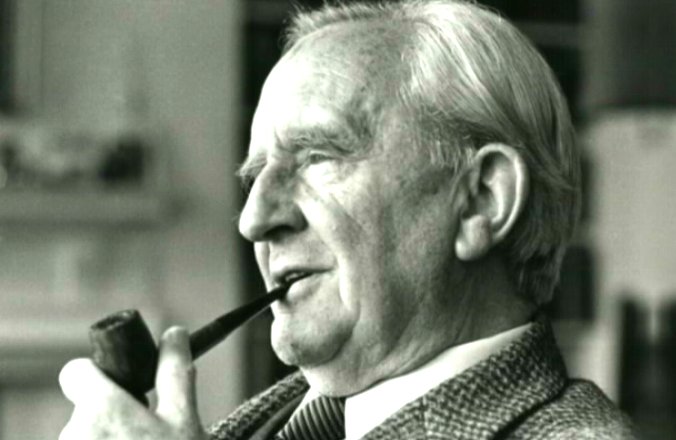Saturday thought for the day

“Not all those who wander are lost.” – J.R.R Tolkien
"We are travellers…not yet in our native land" – St. Augustine

“Not all those who wander are lost.” – J.R.R Tolkien
 Are you ready to have your mind blown?
Are you ready to have your mind blown?
Today I would like to return again to the subject of discernment. In my previous post I wrote about some of the things I’ve wrestled with during my current discernment process. I explained that I find the call to be holy and the call to Holy Orders rather difficult to distinguish from one another and I expressed my frustration that many people seem to assume that the former necessarily implies the latter….
Those who become monks and nuns take vows of (1) poverty, (2) chastity and (3) obedience. These three are known as the Evangelical Counsels. I’ve found that a lot of discernment material, when you really boil it down, focuses upon these three areas. The problem is that the Church teaches that all Christians are called to live out these counsels!
“Christ proposes the evangelical counsels, in their great variety, to every disciple”
– Catechism of the Catholic Church, #915
I guess this does affirm something that I’ve thought for some time – that there are many common threads which run through all the vocations. There are also common graces which all people are reliant upon to live out their vocation, regardless of what that vocation might be.
 Yesterday was the Feast of the Exultation of the Holy Cross. With that in mind, I’d like to share something that happened a few days ago. I was at Mass and, after communion, I was looking up at the large crucifix behind the altar. My eyes settled upon the sign above Jesus’ head and the thought crossed my mind:
Yesterday was the Feast of the Exultation of the Holy Cross. With that in mind, I’d like to share something that happened a few days ago. I was at Mass and, after communion, I was looking up at the large crucifix behind the altar. My eyes settled upon the sign above Jesus’ head and the thought crossed my mind:
“Huh…you know what?…I’m not really sure what ‘INRI’ stands for…”
How many thousands of crucifixes have I seen over the course of my life?!
Now, I wasn’t completely ignorant. I did remember the section of the Gospels where this sign is mentioned:
“Pilate had a notice prepared and fastened to the cross. It read: JESUS OF NAZARETH, THE KING OF THE JEWS…and the sign was written in Aramaic, Latin and Greek” – John 19:19-20
Hmm…so how exactly does “JESUS OF NAZARETH, THE KING OF THE JEWS” get reduced to “INRI”? It turns out that these are the initials of the Latin version of notice:
Iesus Nazarenus, Rex Iudaeorum
Jesus (of) Nazareth, King (of the) Jews
The meaning of this acronym is less obvious to us because, in the Latin translation, the words for “Jesus” and “Jews” don’t begin with the letter “J”, but instead start with an “I”. Since Classical Latin doesn’t have a “J”, an “I” is used instead.
So, next time you’re looking up at a crucifix and see the sign, you’ll know what it means. Behold your king!
“Here I stand, covered by grace
Under the blood that was shed for me
Here I kneel, before the King upon His throne
Here I bow, to worship the Lord
Enjoying his favour on my life today
Knowing that we’ll never be apart” – Here I stand, Phatfish
At the end of last week I scribbled a very short post about my recent discernment efforts. Today I’d like to say something about my discernment frustrations…

As I mentioned in my earlier post, the discernment in my mid-twenties wasn’t a particularly pleasant experience. I tied myself in knots and got extremely frustrated.
This time I approached things a little differently. I had a rough plan of attack, a shortlist of people with whom I wanted to speak and an approximate timeframe. In rare moment of decisiveness, I even managed to bypass my usual extended period of procrastination and got on with the task in hand…
As I mentioned earlier, I was on retreat this past weekend. This meant that I didn’t have the usual amount of time to spend on the Lectionary Notes this week, so sorry if they appear a bit rushed again…
The readings this week speak of God’s mercy and generosity. We so often scorn God’s goodness, but in today’s Readings we learn that God is gracious and generous to all who return to Him.
“Late have I loved you, O Beauty ever ancient, ever new, late have I loved you! You were within me, but I was outside, and it was there that I searched for you… You were with me, but I was not with you… You called, you shouted, and you broke through my deafness. You flashed, you shone, and you dispelled my blindness. You breathed your fragrance on me; I drew in breath and now I pant for you. I have tasted you, now I hunger and thirst for more” – St. Augstine, The Confessions
This Reading from Isaiah is part of Chapter 55’s invitation to “Come to the water, all you who are thirsty…”. Isaiah exhorts his listeners to not delay, but come and enjoy the Lord’s goodness.
Seek the LORD while he may be found, call him while he is near. Let the scoundrel forsake his way, and the wicked his thoughts; let him turn to the LORD for mercy; to our God, who is generous in forgiving. For my thoughts are not your thoughts, nor are your ways my ways, says the LORD. As high as the heavens are above the earth, so high are my ways above your ways and my thoughts above your thoughts.
Possible Questions:
Commentary:
“Seek the LORD while he may be found, call him while he is near”
This is an invitation to return to friendship with God. Do not delay! Seize the opportunity!
“Let the scoundrel forsake his way”
Returning to friendship with God means leaving behind your old way of life.
“…turn to the LORD”
This is essentially what repentance is – turning away from sin and towards God.
“For my thoughts are not your thoughts, nor are your ways my ways”
We are not the same as the Lord. His ways are not are ways. Scripture often describes God in an anthropomorphic (“human-like”) language, but it must always be remembered that God is soooooooo much greater than we are.
In the Gospel Reading we will hear of a particular area where God’s ways are unlike our own. God is infinitely more generous.
I just had Fr. Barron’s new book delivered:
I’ve got the Lectionary Notes to do tomorrow, but I’ll get back onto the subject of discernment after that…